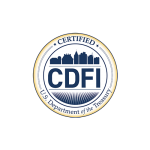Do you struggle with going over your budget? Would you characterize yourself as a chronic overspender? Do you sometimes have to postpone bill payments? If so, you might need to start considering your spending habits, and how much money is going out each month.
If you often find yourself in the “a little spending won’t hurt” attitude, this guide might be a great start for you on your way to more conscious spending.
How Can You Curb Overspending?
Let’s be honest, overspending is so easy to do. A lot of people struggle with sticking to their budgets. Here are a few ways you can curb overspending.
1. Plan Your Budget––and Stick to It!
Before you even plan your next financial move, you need to have a budget set in stone to set yourself up for financial success. Take time at the beginning of the month to figure out how much you want to spend on groceries, bills, and gas throughout the month.
2. Pay Bills Online
Did you know that about thirty-eight percent of people pay their bills online? Pick two days––one in the first half of the month, one in the second––to pay bills for that half of the month. Paying bills online is a great way to keep tabs on all of your bills in one place.
3. Pay With Cash Often
Sure, it’s easy to whip out your silver-plated, shiny debit card to pay for things. As easy as it is to use a debit card, it’s even easier to overspend with one. Credit cards especially can lead to issues, since they allow you to spend money that you don’t actually have. If you’re prone to overspending or spending money that you don’t have, consider living on cash.
4. Make Food at Home
Eating at restaurants and take-out places every once in a while is okay, but try not to make it a routine habit! Though fast-food restaurants don’t cost nearly as much as a 5-star entree, the costs will add up over time. Instead of going out for dinner, look up some recipes and cook at home.
Making your meals at home can save you a lot of money in the long run. Your wallet will thank you!
5. Pay Off & Destroy Credit Cards
Paying with a debit card means you pay for an item and own it immediately. Paying with a credit card, on the other hand, means you pay off an item over time. Oftentimes, credit cards accrue interest, and you’ll have to keep track of monthly payments––to avoid additional late fees. To avoid further temptation to use your credit card in the future, consider cutting up or destroying your cards.
6. Don’t Autosave Credit Card Details
So many websites give users the option to save their credit card details in order to make future transactions faster and more convenient! The problem with this is that it becomes far too easy to make purchases without thinking. Don’t fall into the trap of letting your favorite online shops store your information.
7. Budget & Plan for Fun Spending
Everyone deserves a treat every once in a while! Save up for treats and splurges. This gives you something to look forward to and provides you a reward for staying on target with your budgeting goals. Plus, if you know there’s a treat coming up next week, you’re less likely to splurge beforehand.
For more money-saving tips, tricks, and hacks, explore the Metro Community Development blog.







